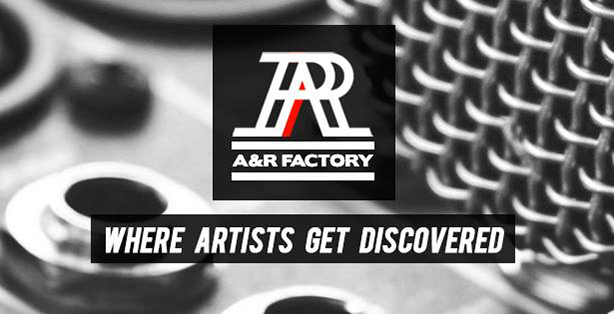In 2024, having an official website remains a vital element for bands and artists; it should serve as a cornerstone for digital presence. Many independent artists make the mistake of thinking that establishing a presence on social media platforms removes the necessity of creating a website; however, there are several reasons why official websites have not become outdated.
In this article, we will cover several compelling reasons why your own domain can be crucial for connecting with fans before covering what you should include on your official website and how to improve the SEO of your website to ensure it reaches the top of Google’s search results.
8 Reasons Why Artists Should Invest in an Official Website
- Digital Identity and Brand Control: An official website acts as the digital epicentre of an artist’s identity. Unlike social media platforms, where algorithms and changing policies can affect visibility, a website is a controlled space. Artists can present their brand, ethos, and artistry in a way that reflects their true essence, unfiltered and undiluted by third-party agendas.
- Direct Communication with Fans: Websites offer a direct line to fans. By circumventing the noise of social media, artists can engage more meaningfully with their audience through newsletters, exclusive content, and updates. This direct communication can foster a deeper connection and loyalty among fans.
- Monetisation and Commerce: Websites provide a platform for direct sales of merchandise, music, tickets, and exclusive experiences. This direct-to-consumer approach often results in better profit margins and more control over the sales process compared to third-party platforms.
- SEO and Discoverability: A well-optimised website enhances an artist’s visibility in search engine results, making it easier for new fans to discover their music and content. This is crucial in an era where online discoverability can significantly impact an artist’s career.
- Professionalism and Credibility: In the industry, having a sleek, well-designed website signals professionalism. It shows that the artist is serious about their career and provides a go-to source for media, promoters, and potential collaborators to find accurate and official information.
- Archiving: A website can act as a living archive of an artist’s career. It’s a space to chronicle tours, album releases, press features, and other milestones, creating a historical record that can be valuable for both the artist and their fans.
- Creative Freedom: Unlike social media platforms with specific formats and limitations, a website offers vast creative freedom. Artists can experiment with design, multimedia elements, and interactive features to create a unique online experience that complements their artistic vision.
- Global Reach: Websites are accessible globally, allowing artists to reach an international audience without the regional limitations sometimes imposed by social media platforms or streaming services.
In summary, while social media and streaming platforms are integral to an artist’s online presence, the importance of an official website cannot be overstated. It remains a powerful tool for identity, communication, monetisation, and legacy building in the digital age.
How to Kit Out Your Official Website
For independent musicians, an official website should be a comprehensive hub that not only showcases their artistry but also provides practical information for fans, media, and industry professionals. Here are 10 essential elements to include:
Engaging Homepage: The homepage should capture the essence of your brand and music. It should be visually appealing, with a clear navigation menu leading to other sections of the site.
Artist Bio: A compelling biography that tells your story, including your background, musical influences, achievements, and any notable collaborations or accolades. This helps in building a connection with the audience and provides context to the music.
Music Catalogue: A section dedicated to your discography. This should include links to listen to and purchase music, ideally across multiple platforms (e.g., Spotify, Apple Music, Bandcamp). Exclusive tracks or versions available only through the website can add value.
Tour Information: Up-to-date information on upcoming shows, tours, and appearances. This section should include dates, venues, ticket purchase links, and any special tour-related content or announcements.
Merchandise Store: An online store for fans to purchase merchandise directly. This could include apparel, physical music formats (vinyl, CDs), posters, and unique memorabilia. High-quality images and secure payment options are key.
Press Materials: A section for media and industry professionals, offering high-resolution photos, official logos, press releases, and contact information for press inquiries. This makes it easier for the media to cover your work.
Music Videos and Gallery: A visual representation of your work, including music videos, live performance footage, and photo galleries. This section can showcase your visual aesthetic and stage presence.
Fan Interaction: Features for fan engagement, such as a mailing list sign-up for newsletters, a blog or news section for updates, and integration with social media feeds. Interactive elements like fan polls or Q&A sections can further enhance engagement.
Contact Information: Clear and accessible contact details for booking, media inquiries, and general contact. This may include a contact form, email addresses, and possibly a phone number.
Social Media and Streaming Links: Hyperlinks to your social media profiles and streaming platforms. These links facilitate cross-platform engagement and make it easy for visitors to follow you on their preferred platforms.
Each of these elements plays a crucial role in creating a dynamic and informative website that serves as a central point for everything related to the artist. The website should be regularly updated to reflect the latest developments in your career.
How to Improve the SEO of Your Official Website
Improving the SEO (Search Engine Optimisation) of your official website is crucial for increasing online visibility. Here are some fool-proof strategies to enhance SEO:
Keyword Optimisation: Identify keywords relevant to your music, genre, and brand. Use these keywords strategically in website content, including titles, meta descriptions, headers, and body text, while avoiding keyword stuffing – the content should remain natural and engaging.
Quality Content: Regularly update your website with high-quality, original content. This could include blog posts, news updates, behind-the-scenes stories, and more. Fresh content signals to search engines that the website is active and relevant.
Optimise for Mobile: Ensure your website is mobile-friendly. A significant portion of online searches are done on mobile devices, and search engines favour websites that are optimised for mobile viewing.
Use Structured Data Markup: Implement structured data tools (like schema.org) to help search engines understand the content of your pages better. This can include marking up events (like concerts), music albums, and breadcrumb navigation.
Optimise Site Speed: Improve the website’s loading speed. Slow-loading sites can negatively impact user experience and search engine rankings. Compress images, use efficient coding, and consider a content delivery network (CDN) if necessary.
Build Quality Backlinks: Gain backlinks from reputable sites. This can be achieved through collaborations, press releases, guest blogging, and getting featured in articles and music reviews. Backlinks from respected industry sites can significantly boost SEO.
Social Media Integration: Integrate the website with social media platforms. Regularly share website content on social media and encourage sharing by visitors. Social signals can indirectly impact search rankings.
Local SEO: If you perform locally, optimise for local SEO. This includes listing the website on local directories and Google My Business and including location-specific keywords.
Meta Descriptions and Title Tags: Craft compelling and descriptive title tags and meta descriptions for each page. These should include relevant keywords and encourage users to click through from search results.
Video Content Optimisation: If the website includes music videos or performance footage, ensure these are optimised for search engines. Use descriptive titles, tags, and descriptions for video content.
Consistent Content Updates: Regularly update the website with new content, such as tour dates, album releases, and news. This keeps the site dynamic and engaging for both visitors and search engines.
–
For more tips on how to become more visible in the digitised music industry, keep following our blog or enquire about our artist development services.
Article by Amelia Vandergast


